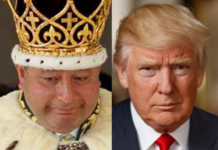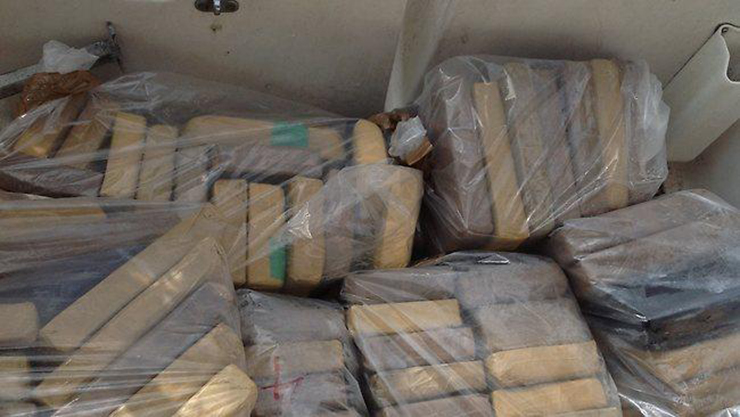The president of the Tonga Dialysis Foundation (TDF), Said Moehau, has defended an amount of TP$50,000 which the organisation’s financial statement said it owed him.
Meanwhile, the Health Ministry claims that the TDF is using out of date and incorrect data to boost its argument for the establishment of a private dialysis clinic in the kingdom.
Moehau said he spent his own money researching for cheapest dialysis treatment that could be established in Tonga.
In Tongan he said: “Koe ‘uhinga hono faka’asi he financial statement Ke faka tokanga’i e
fakamole ne fai ki mu’a pea fokotu’u e TDF. Oku te’eki ai fai ha feinga pa’anga ‘Ae TDF ka
koe small donations pe mei he kau memipa oku fakalele’aki e ngaue.”
This translates into English as: “The reason why it appears in the statement is to make note of the expenses made before the TDF was established. TDF has yet to raise fund but the work is run on small donations from members.”
He did not respond when Kaniva News asked for details for the spending he had made with
the TP$50,000.
Kaniva News has obtained a copy of the Foundation’s Statement of Revenue and Expenses
from December 2014 to October 2015, which describes the TP$50,000 as an “in-kind
contribution.”
Two other notes on the statement said the money was spent on “Research & overseas conferences” and “USA & China, President of TDF.”
The statement said because the TDF’s financial position was weak at the time the president’s money, as agreed by the organisation, had to be reimbursed.
Two other major in-kind donation in the statement were $50,000 made by the LDS church and $30,000 by the German government with a note on it saying “submit proposal to Hon.
Counsel.”
The statement said $23, 301 cash had been collected from the following donors:
MBF Bank: $5000
Tonga Power: $3000
Tonga Airport Ltd: $1500
Moki and Vini Sika: $1000
Committee contribution for launch: $500
British American Tobacco: $5000
Tonga Telecommunications Corp: $500
Tonga Airport Ltd: $1500
Ports Authority: $1000
From December 2014 to October 2015 the statement said TFD spent $3,509.50, leaving its
account with cash of $19 791.71.
It said $5093.71 was deposited into MBF bank and $14,698 was deposited into PIC bank.
Financial reports not audited
Moehau said TDF accounts were not audited.
“We do not have an audited financial report as yet, but every penny spent from the TDF
account is pre-approved by the TDF Board,” he said.
This required two signatories, the treasurer and secretary, with the president as alternative
signatory. Most operational costs were paid for by board members outside of the TDF
account.
As Kaniva News reported last month, the Ministry of Health has refused to support a move
by the TDF to establish a national dialysis unit in the kingdom.
Health authorities said the Ministry could not support the project because TDF had failed to
provide requirements to conduce an approval.
This included requiring a financial plan for TDF to be able to address issues of financial
transparency.
Moehau said TDF had provided all requirements by the Ministry, something the government
health authority denies.
Active members
The Ministry claimed some members left TDF because they were dissatisfied with the way how the organisation was run.
These members included a former treasurer for the organisation as well as the Minister of Labour and Commerce Dr. Tu’i Uata. Dr. Uata did not respond to our request for comment.
The issue was also raised with Moehau asking if he could tell us about the number of TDF active members.
He did not respond to the question which was sent to him by email. But in his responses to our other queries he said he cc’d them to former MP and government minister Sangster Saulala and TDF treasurer Mishka Tu’ifua.
Corrections of patient numbers
The Health Ministry has disputed figures used by the TDF to support its campaign to
establish a dialysis unit in Tonga.
The Journal of Diabetes reported in 2016 that an error had occurred when international
health authorities were testing for diabetes in Samoa, Fiji and Tonga. This led to figures
being doubled.
Dr. Sione Latu told Kaniva News the original report based on this research said there was a
34.4 percent prevalence of diabetes in Tonga, but this was revised down to 17.7 percent.
Dr Latu said ABC radio in Australia had quoted the Ministry’s CEO, Dr. ‘Akau’ola, as saying
about 200 people were diagnosed with chronic kidney failure in Tonga.
But Dr. Latu said he thought Dr. ‘Akau’ola should have been given a chance to double check
the story before it was aired as it was misleading.
Chronic kidney failure or chronic renal failure (CRF) were patients with kidney disease
requiring some form of kidney support called renal replacement therapy (RRT) of which
dialysis was one option and a transplant the other, Dr Latu said.
“It doesn’t make sense that 200 people have CRF and only a third need dialysis. The figure of 200 probably means those with chronic kidney disease.
“There are five stages of this disease. Those with Stage 5 are called chronic renal
failure or end stage renal disease (ESRD) and often requiring RRT.
So 200 refers to the total number of patients with varying degrees of kidney disease and around 66 patients, or a third, are in Stage 5, requiring RRT. This 66 is close to current projections.”
He said the idea that there were 200 patients diagnosed with Stage 5 CKD requiring dialysis every year was wrong and contradicted worldwide figures.
Dr Latu said the number of people with ESRD / Stage 5 CKD was stable and it was almost
impossible to say there were 200 deaths in one year from ESRD.
“I think TDF is running a cumulative total of 200 every year needing dialysis and we now
have 10,000 needing dialysis with 200 annual deaths,” he said.
“Samoa has 117 patients on dialysis with a population of 190,000 so how can we have
10,000?”
He said only a fraction of diabetics developed kidney disease needed dialysis.
For more information
Ministry says no promise to open dialysis unit in Tonga, can’t endorse private clinic
Health authorities demand Tonga Dialysis Foundation prove project viable







